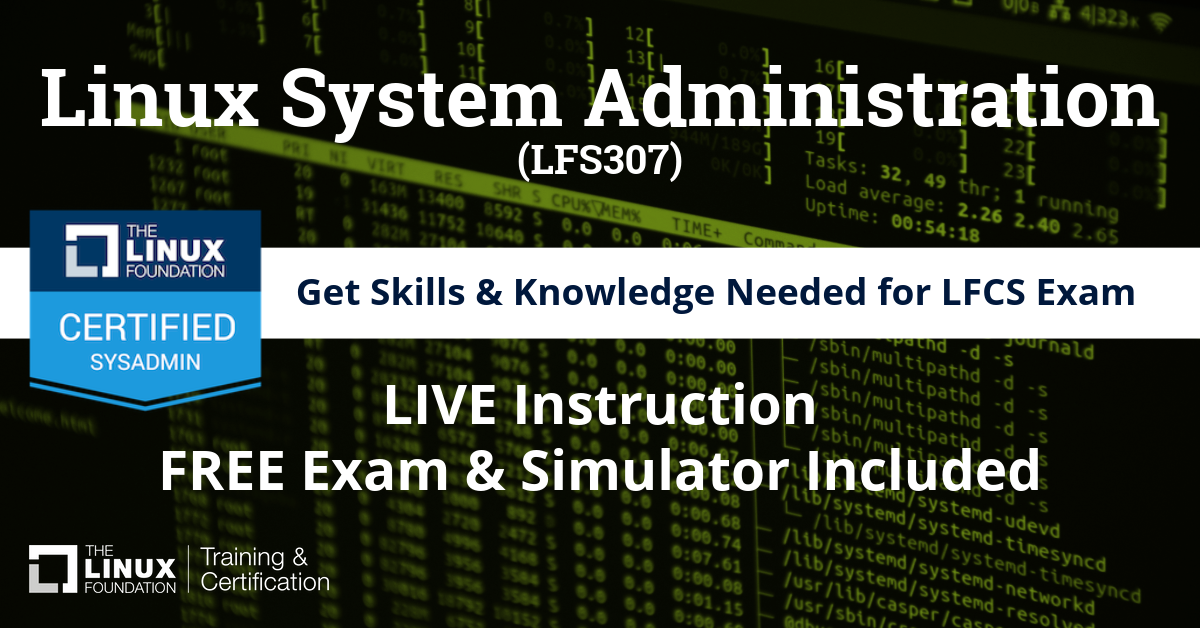Linux dominates web servers, the cloud & smartphones. Ensure your long-term career prospects by learning high-demand Linux skills including how to administer, configure & upgrade Linux systems & the tools & concepts you need to build & manage an enterprise Linux infrastructure.
In this live, instructor-led course you will learn with a cohort of fellow IT professionals while gaining key knowledge & skills related to the Linux Foundation Certified System Administration (LFCS) exam. Course enrollment includes:
→ FREE LFCS exam registration: 12 months to schedule with one retake
→ FREE LFCS exam simulator: 2 attempts
→ 12-month access to course materials















